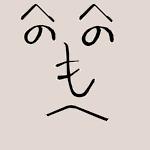
Image via Wikipedia
Yoi ichi-nichi to yā! (良い一日とやあ!)We are here for to learn Japanese language in its easiest—and of course, funniest manner.
All languages across the world, not just Japanese, have their own slang or “informal” side of the language. Though most educational institutions would oppose these terms because it does not pass the standards of the formal Nihonggo, still, as a person who wants to blend in to the Japanese culture, it is still part of the learner’s process to learn its slang as well.
Here are the very long lists of Japanese slang that we think is helpful for your learning. This is just intended to “take a break” from the serious side of learning Japanese; let’s just add up some spices, if you don’t mind.
Japanese Terminology
Pronunciation and Literal Meaning
ABAYO
Informal term for “good bye”, this is not considered a polite way to say goodbye.
AITSU
Impolite term meaning “that thing over there” or “that dude over there”.
BECHA BECHA
Slang used to describe a “chatterbox” or a really noisy conversation.
BISHONEN
Informal term for “hunk” or “cute guy”
CHOBERIGU
Informal term which means “extremely good”.
CHO means “extremely”, and the BERIGU actually comes from and sounds like “very good”.
CHINKE
Slang, refers to something “cheap” and of “poor quality”.
DATTARA
Informal phrase which means “if that is so…” and can be used as in “so?”
DO
Colloquial prefix, used to add emphasis to words such as “total” or “absolute” such as “Do-Aho!”
ETO
Interjection that is similar to “uhhh..” or “errr…” and can imply a phrase such as, “well, actually….”
FAITO !!!
Loan word which refers to a fighting spirit, kinda like GAMBATTE and is said when you want to express that you must keep on going and hang in there.
FUKERU
To play hooky from school, or something. This word is very similar to saboru
GARUTACHI
Informal term which roughly means “partners in crime” and refers to real hoodlums.
GUZU
Somebody who dawdles, wastes times, or goofs off.
HARA HETA
Sounds like HAH REH TAH. Informal phrase which means “To be hungry” and literally translates as “My/your belly is in a bad condition”.
HIDOI
Sounds like HEE DEH. Informal term meaning “terrible” or “horrible” or “grotesque”
II YO
This means, “It’s OK, don’t worry about it !”
IYA
Sounds like EE YAH. Exclamation meaning “no way!” or something like “that’s terrible!”
JUNBI O.K. DESU
This is a very modern way of saying, “I’m ready!” And it really does use O.K. as in English.
KEITA
Sounds like KAY TAH. Informal term for “cell phone”
MAJI
Sounds like MAH GEE. Informal phrase that means “really?” or “are you serious?”
NANDAKKE
This expression is used when someone mentions something that you might have been told before but you forgot. Or, it is used to express ” Um yeah, what about that (thing you’re talking about)?”
OHA
Sounds like OH HAH. Exclamatory phrase for “good morning”. Very short for OHAYO GOZAIMASU.
PURI PURI
This is used to describe somebody’s mood that seems to be grouchy or moody.
RAKKI
Sounds like RAH KEY. Slang term that comes from the English word “lucky” and is used to express that something really “cool” just happened that makes you feel “lucky”.
SAITE
Sounds like SIGH TEH. Slang word meaning “the worst” or “it’s the pits” or “crappy”.
TTE KA
Very slangy phrase, and can be used for just about anything like…..”you know…..” “….oh yeah…” “..by the way….” “in other words”
USSE
Sounds like UUH SEH. Slang for URUSAI, this more often means “shut up!”
WAKE
Sounds like WAH KEH. Informal word which means “reason, or meaning” This is one word which requires a little extra study. In some cases it is inserted just to express emphasis on what is being said. Be sure you study as many uses of this word because sometimes it changes what is being said completely.
YUPPA
Sounds like YUP PAH. Slang term for “yup” or “yeah”.
ZURUI
Expression used when someone thinks someone is playing dirty or unfair. The normal phrase is “Zurui shita !” which means, “You cheated !” or “You played dirty !”The learning in itself is really very different when you really immerse yourself to study Japanese in Japan. Its learning is a lot different and précised and you will certainly get to understand and learn the language faster and easier.

